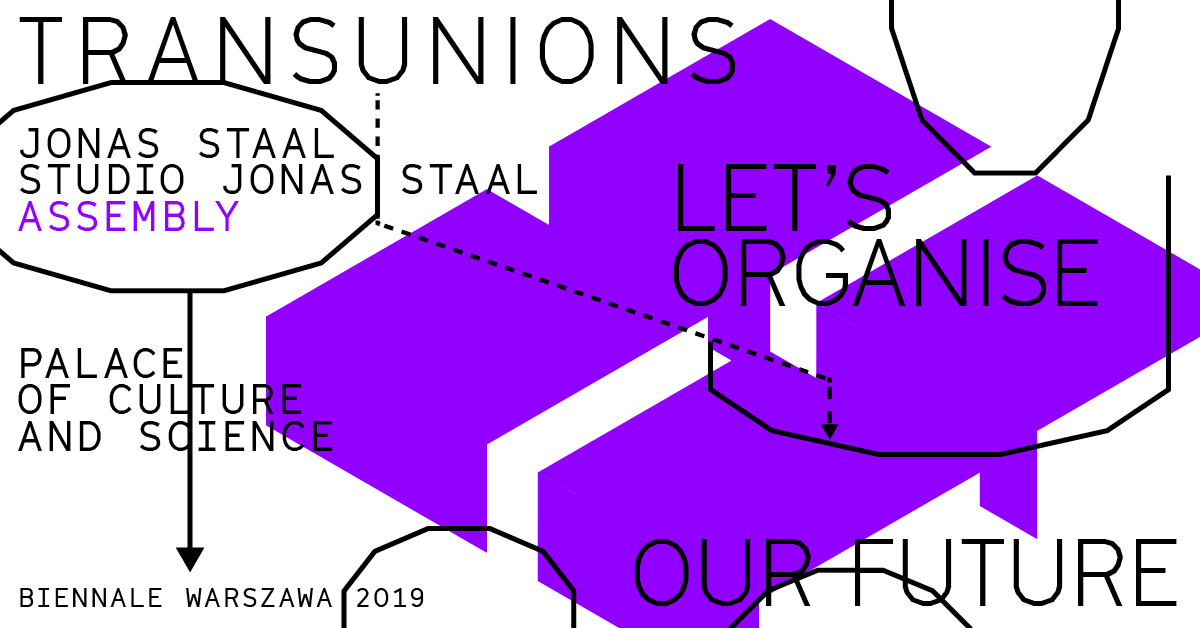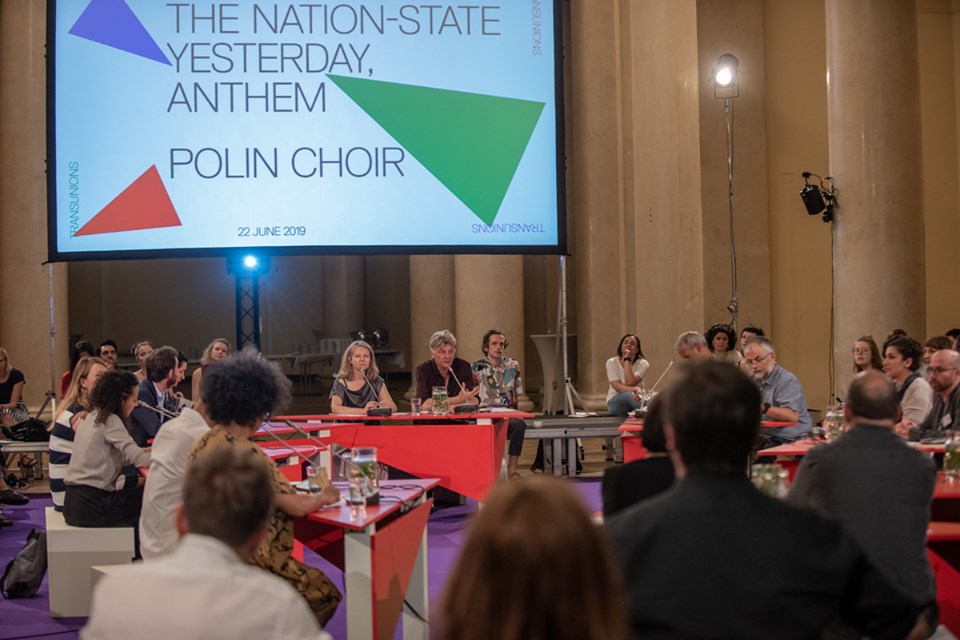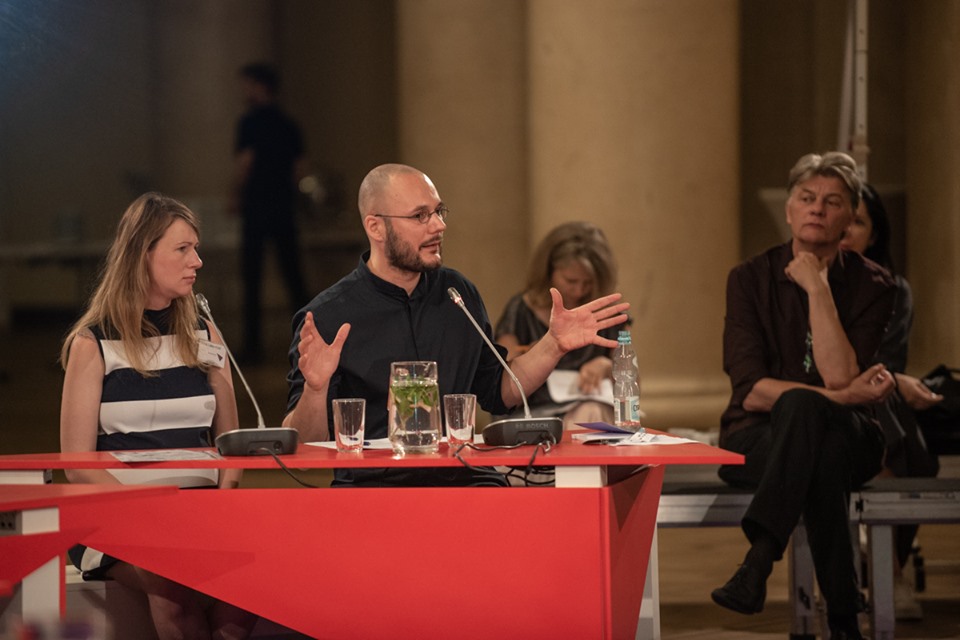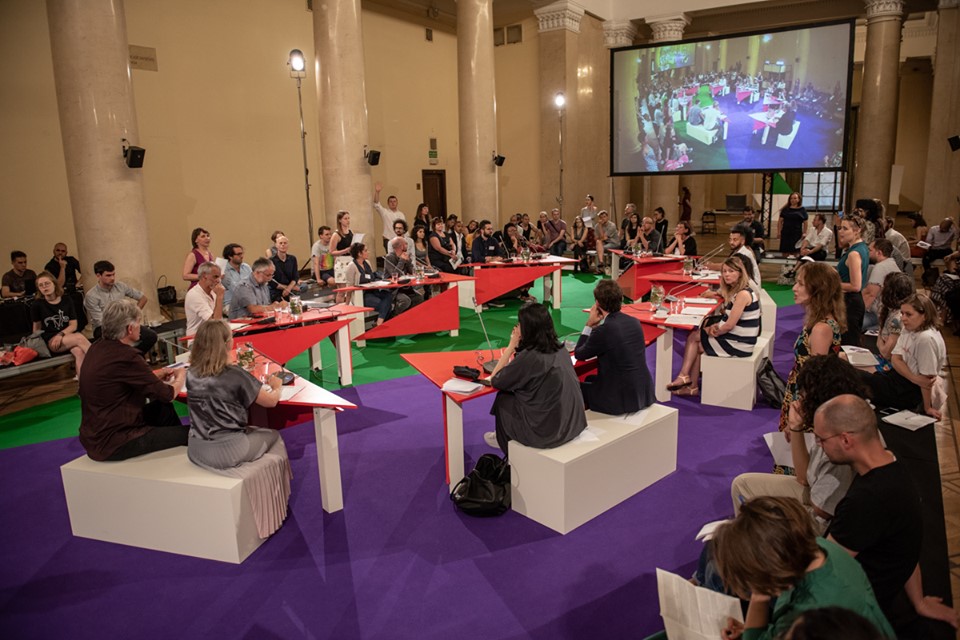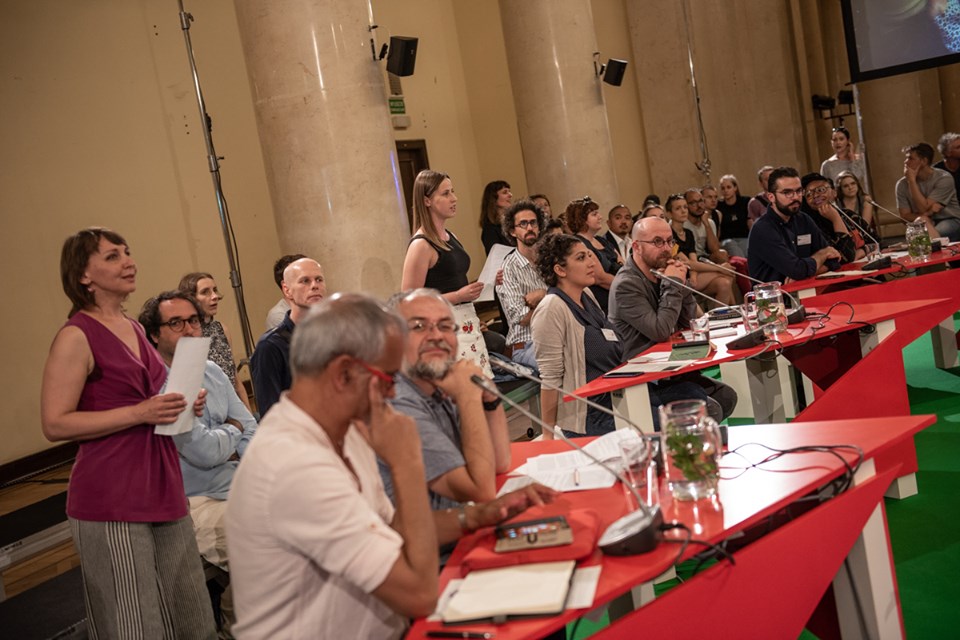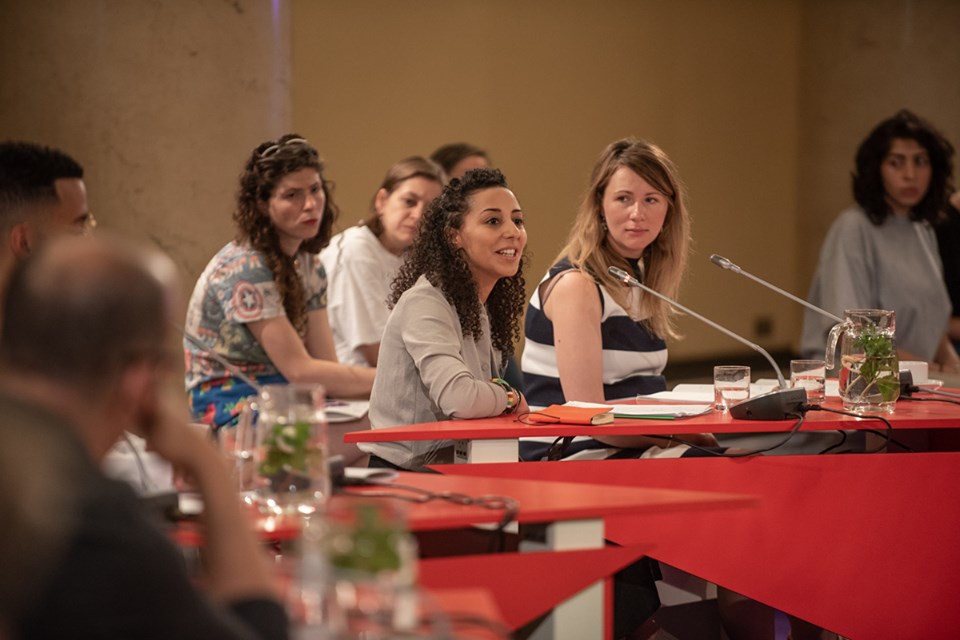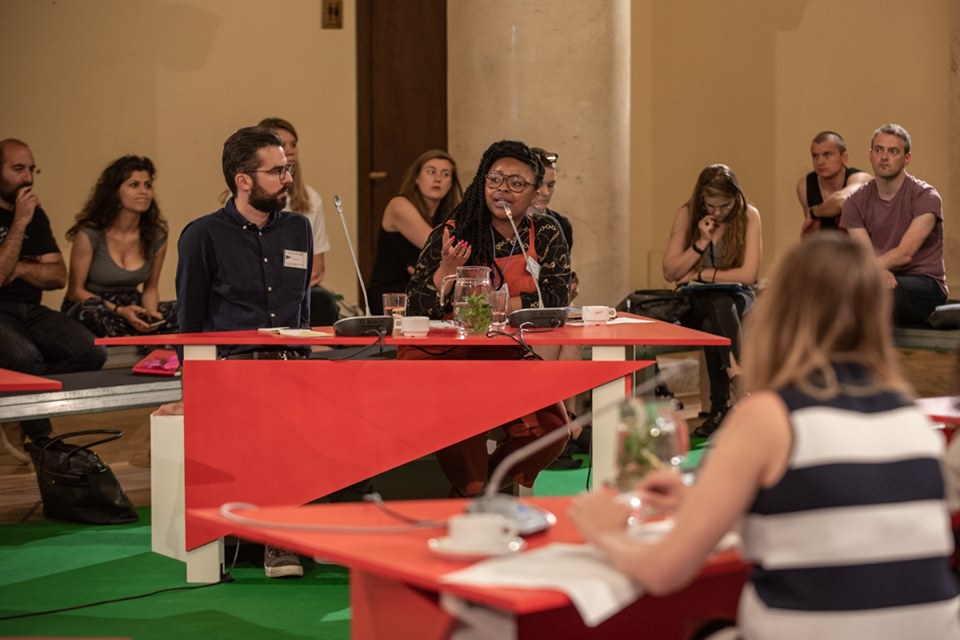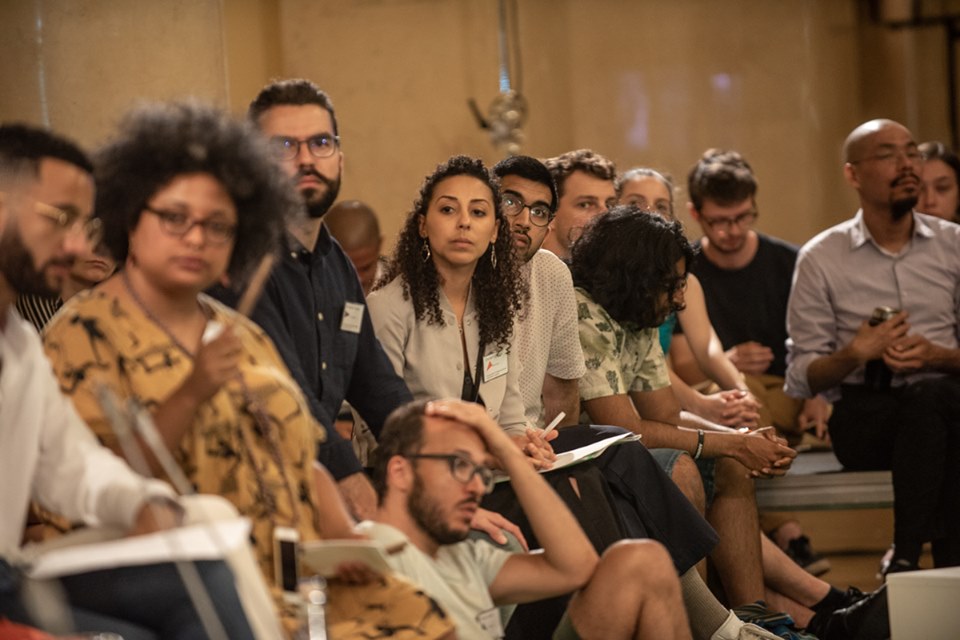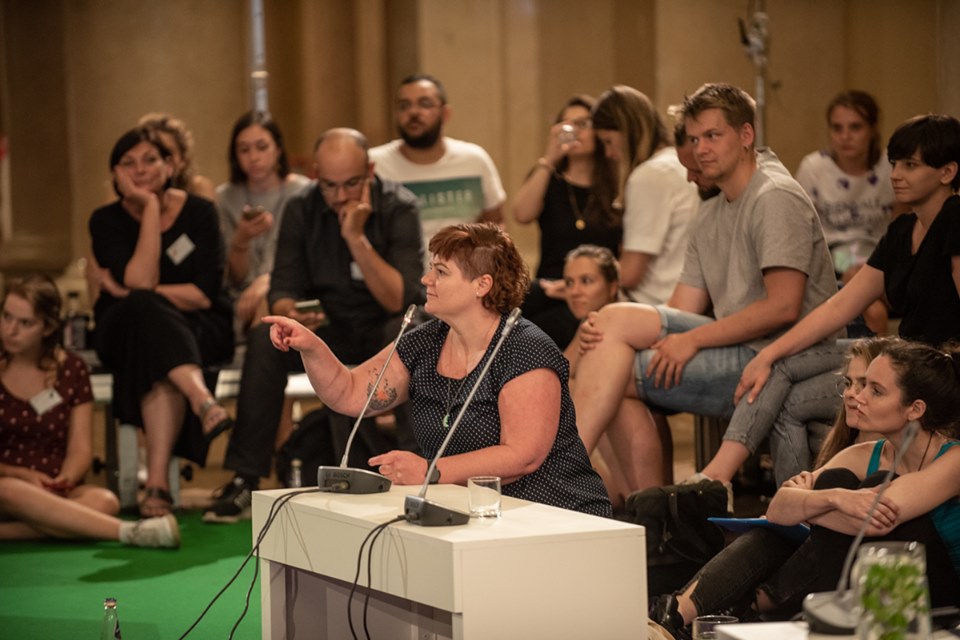Transunions
Jonas Staal
TRANSUNIONS gathers various organizations invested in theorizing, mapping and practicing new models of emancipatory transnationalism in the field of politics, economy, ecology, education and culture, striving to establish new models of planetary egalitarianism.
The nation-state is in crisis. With the rise of neoliberalism, it has become a tool to subsidize and benefit corporations which are operating increasingly independent from any democratic control. This state-sponsored global corporate-economy has generated intense anxiety that has fueled ultranationalist sentiment and a growing support of authoritarian regimes to “take back control.” Simultaneously, we are faced with interrelated planetary threats, from offshore tax-havens to species-threatening climate change, that are addressed neither by corporations nor by national governments in an effective way: they contribute to their cause, rather than their solution.
During TRANSUNIONS transnational organizations, parties, civil platforms, think tanks and activist groups, gather to discuss (1) the meaning of the nation-state; (2) the challenges and gains of transnational organizations today; and (3) the future of a new transnational union. Gathered together around a single table, they pre-enact a new transnational order of the future into the present.
TRANSUNIONS will take place in the Palace of Science and Culture on 22nd June, a monumental architecture surrounded by sculptures of internationalist revolutionaries, “gifted” from Stalin to the Polish people. From the Cold War onwards, Poland – in its alliance with the Soviet Union – invested substantially in post-colonial nations in North-Africa and the Middle East. Polish architects, planners, engineers and artists traveled abroad, to develop infrastructures such as the fair area in Accra, the masterplans of Baghdad, Algiers, and the region of Tripoli as well as housing neighborhoods in Iraq, Libya, and Syria. In a time of growing ultranationalism, Transunions redefines this internationalist heritage in light of a new transnational horizon.
* With contributions by Dounia Kchiere (communications strategist, former United Nations/UNICEF); Fernando Burges (Unrepresented Nations and Peoples Organization, UNPO); Andrzej W. Nowak (philosopher, Poznan University); Abderrahim Kassou (Alternatives Forum of Morocco, FMAS); Esra Küçük (Maxim Gorki Theatre/ Young Islam Conference); Mike van Graan (African Cultural Policy Network, ACPN); Diana Arce and Angelo Camufingo (Black Lives Matter Berlin); John Jordan (The Laboratory of Insurrectionary Imagination, Zone a Defendre ZAD, Notre Dame des Landes); Zdenka Badovinac (L’Internationale); Dilar Dirik (Kurdish Women’s Movement); Siana Bangura (Black Lives Matter UK); Lorenzo Marsili (DiEM25/European Alternatives/ School of Transnational Activism); Fiona Dove (Transnational Institute, TNI); and many others. Co-chaired by Joanna Warsza (curator) and Chris Keulemans (writer, journalist).
TRANSUNIONS is part of the long-term artistic and political campaign New Unions. Assembly design by artist Jonas Staal, in collaboration with architect Paul Kuipers and designer Remco van Bladel.
TRANSUNIONS will be accompanied by a student meeting of the School of Transnational Activism. During the meeting we will also hear the choral commentary of the Polin Choir which is one of the constituting elements of the polyphonic manifesto for the future – a musical piece that will be heard in its entirety on 23 June.
Participants and organizers
Participants
Organizers
Program
11:00-11:20
Introduction
Jonas Staal, artist and founder New Unions
Anna Galas-Kosil, curator Warsaw Biennale
11:20-11:30
Introduction by co-chairs
Joanna Warsza, curator
Chris Keulemans, writer and journalist
11:30-11:35
The Nation-State Yesterday, anthem
POLIN Choir
11:35-13:30
BLOCK I: The Nation-State Yesterday
What is or was the nation-state? What were its emancipatory potentials, and where did it fail to govern 21st century global economies and conflicts? What of the nation-state are we to maintain and what must we re-imagine, to establish a transnational politics for the twenty-first century?
Speakers:
- Dounia Kchiere, Communications Strategist and a former United Nations employee
- Fernando Burges, Unrepresented Nations and Peoples Organization (UNPO)
- Andrzej W. Nowak, Institute of Philosophy at Adam Mickiewicz University in Poznan
- Abderrahim Kassou, architect and urban planner, Moroccan Forum of Alternatives (FMAS)
- Esra Küçük, Managing director Allianz Kulturstiftung, founder of the Young Islam Conference
13:30-14:30
Break
14:30-14:35
Transnationalism Today, anthem
POLIN Choir
14:35-16:30
BLOCK II: Transnationalism Today
Why is transnational politics a crucial foundation to confront the needs and crises of the twenty-first century? How does transnational politics deal with common threats such as rising authoritarianism, offshore tax havens and climate change? And what are the practical models of present-day transnational governance that transpolitics aims to bring about?
Speakers:
- Mike van Graan, playwright, President of the African Cultural Policy Network
- Diana Arce, artist, activist and researcher, Black Lives Matters Berlin
- F. Angelo Camufingo, artist and researcher, Black Lives Matters Berlin
- John Jordan, artist and activist, The Laboratory of Insurrectionary Imagination
- Zdenka Badovinac, Director of the Moderna galerija, Ljubljana / L’Internationale
16:30-17:00
Break
17:00-17:05
Transunions Tomorrow, anthem
POLIN Choir
17:05-19:00
BLOCK III: Transunions Tomorrow
How do we unionize on a transnational scale the various organizations, parties, civil platforms, think tanks and activist groups invested in a new planetary politics? How do we challenge the vested powers of transnational corporations and the remnants of international state formations in the form of NATO, with the aim to reclaim and shape anew a transnational power of our own?
Speakers:
- Dilar Dirik, researcher and activist, Kurdish Women’s Movement
- Siana Bangura, writer, producer and community organizer, Black Lives Matter UK
- Lorenzo Marsili, philosopher, author, and activist, European Alternatives / School of Transnational Activism
- Fiona Dove, Executive Director Transnational Institute
18:40-19:00
Final reflections of all participants
19:00-19:15
Closing summary by chairs and organizers
